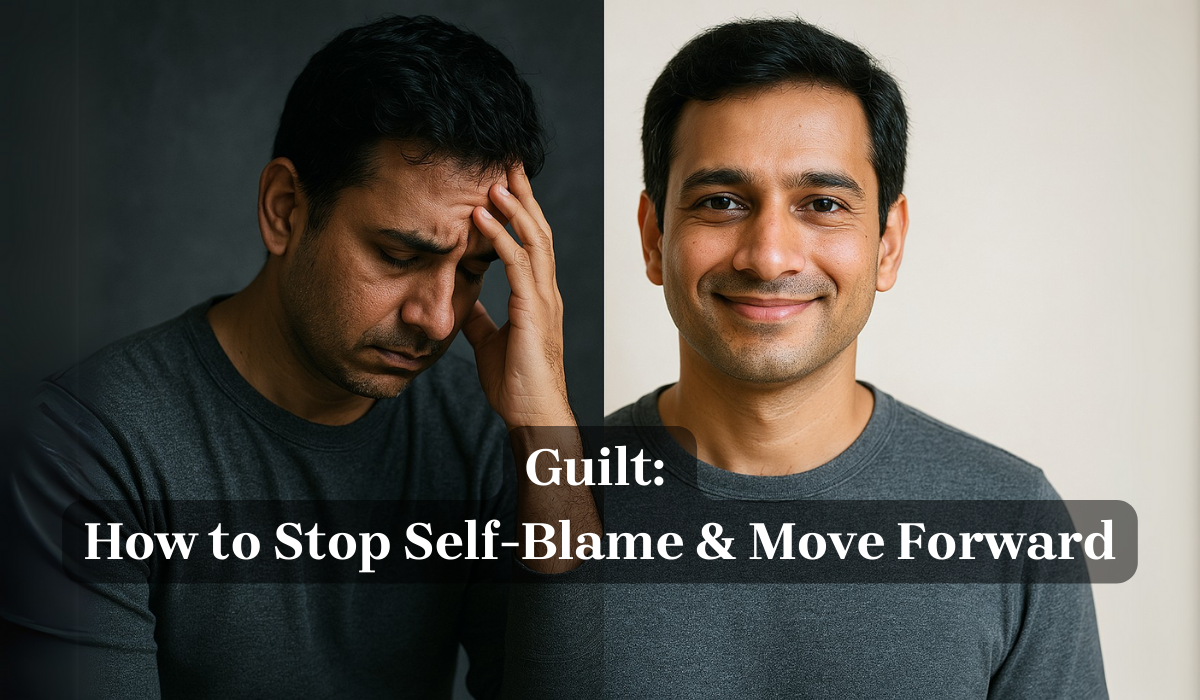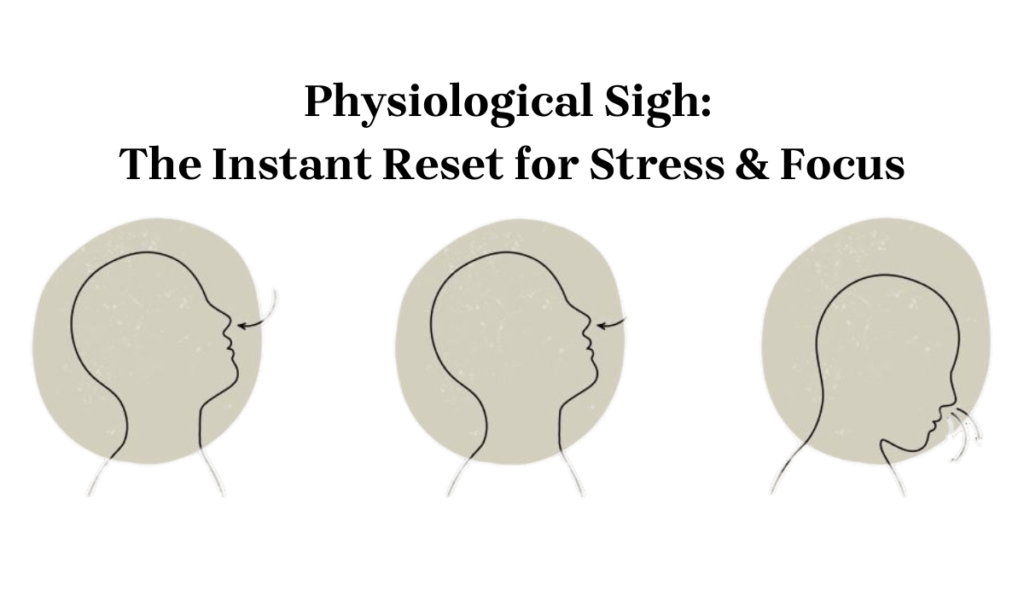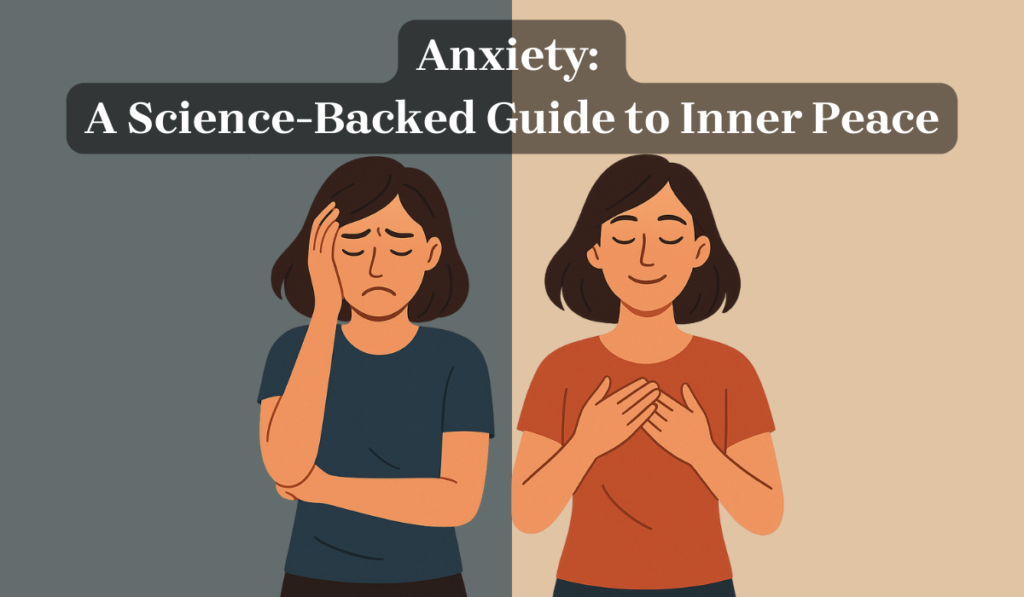Guilt: How to Stop Self-Blame & Move Forward
Ever lay awake at night replaying mistakes, caught in a cycle of guilt and self-blame? You’re not alone. Guilt is common—but it doesn’t have to control your life.
By choosing to explore guilt, you’ve taken a brave step toward emotional freedom. This guide clearly explains what guilt is, why you feel it, and how you can replace self-blame with self-compassion.
What is Guilt?
Guilt signals that your actions conflict with your personal values or expectations.
- Healthy guilt motivates learning and growth.
- Excessive guilt traps you in regret and shame, blocking emotional progress.
Common examples:
- Constantly regretting past decisions.
- Feeling responsible for things beyond your control.
- Believing you’ve repeatedly let others down.
Why Do You Feel Guilty?
Emotional Response
Guilt activates your brain’s emotional pain centers, causing sadness, anxiety, regret, and stress throughout your body and mind.
Psychological Causes
Frequent guilt typically stems from:
- Unrealistic expectations of yourself or others.
- Difficulty accepting mistakes as normal.
- Fear of disappointing loved ones.
Social and Environmental Factors
Pressure from family, cultural norms, or workplace environments can intensify guilt. Constant criticism or lack of emotional support further amplifies feelings of inadequacy.
Consequences of Unresolved Guilt
Mental Health Impact
Chronic guilt can lead to low self-esteem, anxiety, depression, and social isolation. Constant self-blame traps you in negative thinking loops, blocking your personal growth.
Physical Health Impact
Persistent guilt increases stress hormones, weakens your immune system, disrupts sleep, and can trigger headaches, fatigue, and other physical issues.
Move from Guilt to Emotional Freedom: Actionable Steps
Use these practical, science-backed strategies to manage guilt effectively:
✅ Mindset Adjustments
- Practice Self-Compassion: Treat yourself like you’d treat a close friend in a similar situation.
- Accept Imperfection: View mistakes as necessary stepping stones for growth.
- Set Realistic Expectations: Adjust your standards to achievable, human levels.
✅ Practical Behaviour Techniques
- Reflect and Repair: Acknowledge your responsibility, apologize if needed, and intentionally move forward.
- Thought Replacement: Replace harsh self-criticism with realistic, kind, and compassionate self-talk.
- Gratitude Practice: Regularly acknowledge positive aspects of life to balance negative feelings.
Immediate Techniques to Break Free from Guilt (Proven to Work!)
When guilt feels overwhelming, try these quick-relief methods:
- 5-Minute Breathing Exercise: Quickly calms anxiety and emotional distress.
- Expressive Writing: Instantly reduces emotional tension by clearly writing out your feelings.
- Physical Movement: Short walks or stretches immediately shift your energy away from emotional pain.
Mental Strategies for Long-Term Peace
- Regular Journaling: Identify recurring guilt triggers and patterns to understand and manage them better.
- Visualization: Imagine yourself accepting past mistakes, forgiving yourself, and confidently moving forward.
Common Guilt Myths (Debunked!)
Myth: “Feeling guilty means I’m a bad person.”
Truth: Good people experience guilt. It simply shows you care deeply.
Myth: “I must punish myself for mistakes.”
Truth: Self-punishment traps you. Learning from mistakes empowers you to move forward.
Understanding these truths helps transform guilt into meaningful growth.
When to Seek Professional Help
Self-help strategies are powerful, but consider professional support if:
- Guilt consistently interferes with daily life.
- Negative self-talk persists despite your best efforts.
- You experience ongoing sadness or anxiety due to guilt.
Reaching out isn’t weakness—it’s bravery. Professionals can help you release guilt and cultivate lasting emotional wellness.
Real-Life Example: Ravi’s Journey from Guilt to Growth
Ravi (name changed) carried heavy guilt over past relationship mistakes, losing self-confidence and joy. Through two months of dedicated journaling, mindfulness and other simple practical tools, Ravi began transforming guilt into acceptance, reclaiming emotional clarity and happiness.
Powerful Questions to Reflect On
- What specifically triggered my guilt?
- Am I holding myself to unrealistic standards?
- What’s one compassionate step I can take right now to move forward?
Your Guilt, Your Growth—You’re in Control
You don’t need to erase guilt entirely. Instead, use it intentionally for personal growth. Turn guilt into compassion, wisdom, and lasting self-confidence.
By reading this far, you’ve already shown deep commitment. Imagine the relief you’ll feel when you finally forgive yourself and start moving forward.
Ready to Finally Break Free From Guilt?
Managing guilt alone can feel overwhelming—but you’re not alone. At IntuiWell, we offer personalized strategies to help you release guilt and reclaim emotional freedom.
Book your free IntuiWell discovery session today. In just one personalized session, you’ll gain powerful tools designed specifically for you.
Together, we’ll create your clear path from guilt to compassion, meaningful growth, and lasting emotional peace.



